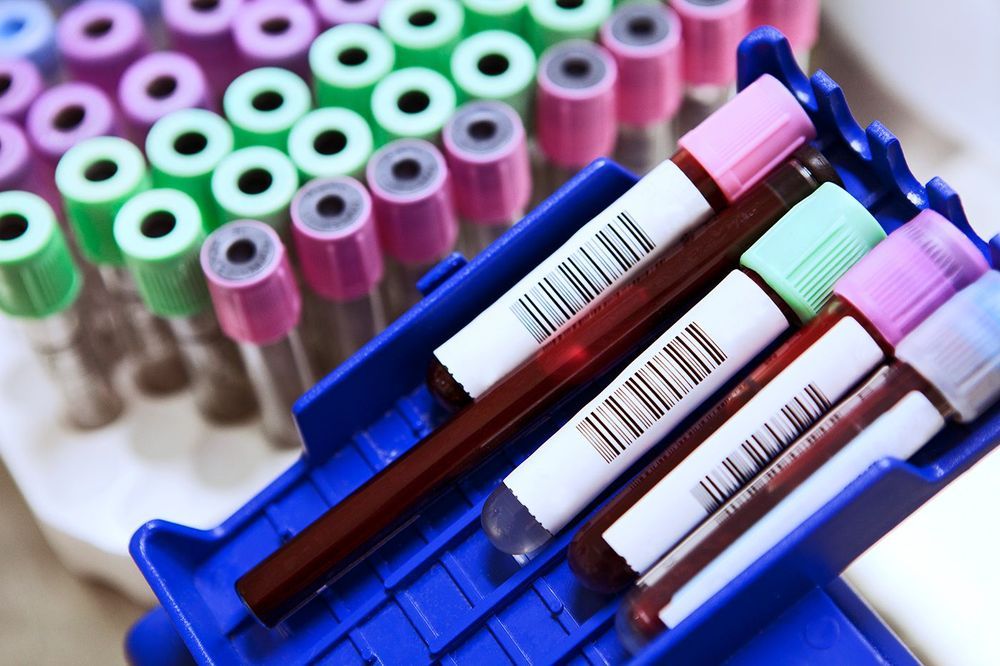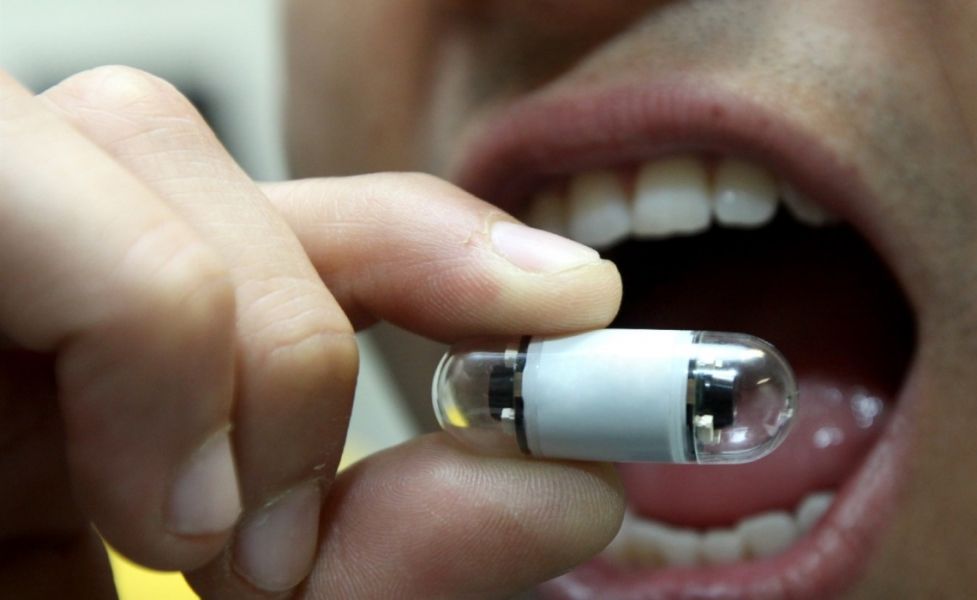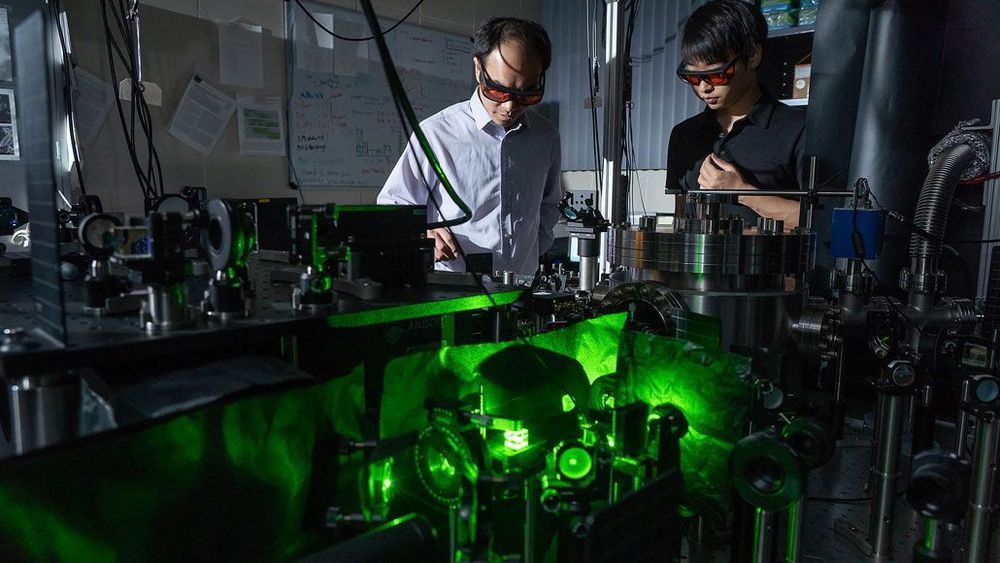Samsung’s Galaxy S20 Ultra might have over-the-top specs with 16GB of RAM and a ridiculous variety of cameras.




Brain cancer remains challenging to diagnose, due to nonspecific symptoms and a lack of cost-effective tests. A new blood test that uses attenuated total reflection (ATR)-Fourier transform infrared (FTIR) spectroscopy in conjunction with machine learning technology, may help advance the detection of brain cancer.
The patented technology, developed by a team at the University of Strathclyde, uses infrared light to produce a “bio-signature” of a blood sample and applies artificial intelligence to check for the signs of cancer.
The research is published in Nature Communications in a paper titled, “Development of high-throughput ATR-FTIR technology for rapid triage of brain cancer.”

Japanese billionaire Yusaku Maezawa’s search for a girlfriend to join him on a voyage around the moon will be the subject of a new documentary program, in the latest attention-grabbing stunt by the entrepreneur.
44-year-old Maezawa, who sold his online fashion retailer Zozo Inc to SoftBank Group Corp, is seeking single females aged over 20 for the show, which will be shown on streaming service AbemaTV.

Circa 2019
Electric thrusters for spacecraft are increasingly shrinking, and could prove key for new space missions. And, according to two novel space tech companies, Phase Four and Accion Systems, they might even go interplanetary.
Conventional rockets that rely on chemical reactions “are a great way to generate a lot of thrust, but they are very inefficient when it comes to generating thrust given the amount of propellant they carry,” Simon Halpern, founder and CEO of space propulsion company Phase Four in El Segundo, California, told Space.com. “That’s why launching even a small satellite requires a gigantic multistory rocket.”
Scientists have explored a variety of alternatives to chemical rockets over the years. One is electric propulsion, which generates thrust by using electricity to accelerate electrically charged propellants away from a spacecraft. [Wild Ideas for Superfast Space Propulsion].


If you ask astronomers how many planets in the universe harbor life, they will likely say there are only two possible answers: one or infinity. We can rule out zero, thanks to the decidedly alive Earth, which means that so far one is the answer. But if we discover another, the answer jumps straight past two to infinity. The reason: You can posit a universe in which the confluence of factors that made life possible here are so complex that the right roll of the dice could statistically happen only once. But if it can happen more than once, why should there be any limit? (Actually, something could be so rare in nature that it happens only two or three times, but the overall zero-one-infinity idea originated with theologians debating atheism, monotheism and infinite polytheism, and planetary scientists just kind of liked it and claimed it as their own.)
Humans have always hoped for infinity, since it would be an awfully lonely universe if we’re the only planet with its porch light on. And with the recent explosion in the discovery of exoplanets (planets orbiting other stars), astronomers now believe that virtually every star in the Milky Way is circled by at least one planet. There are up to 250 billion stars in our galaxy and about 100 billion other galaxies out there—trillions upon trillions of places life could be thriving.
In their search for such worlds, astronomers focus their energy on Earth-like, rocky planets, with atmosphere, water and an orbit that places them in the so-called habitable zone, where temperatures are just right for the water to exist in liquid form. Last week, NASA announced a jackpot: an Earth-sized world in the habitable zone of a hospitable star, just 100 light years from here. The star is known as TOI 700 and the planet is TOI 700 d, the outermost of a litter of three planets. TOI 700 is a red dwarf, a class of stars smaller and cooler than our sun, which were at first thought of as poor candidates for nurturing life, due to their relatively low temperature. But the fact is, as long as the planets orbit close enough to the hearth of the star, they get plenty of light and warmth—and TOI 700 d does.
Episode 16 (full episode)
OLD AGE: the biggest threat facing humanity
with Dr. Aubrey de Grey
Show notes and resources: (to be released on 13 Jan 20)
Follow us on social:
Facebook: http://www.facebook.com/connectwithUE/
Instagram: http://www.instagram.com/connectwithUE/
Twitter: http://www.twitter.com/connectwithUE
LinkedIn: http://www.linkedin.com/company/connectwithue/
Listen to the episodes on podcast:
Apple Podcasts: https://podcasts.apple.com/us/podcast/upgraded-executive/id1481894862
Spotify: https://open.spotify.com/show/1gfW7CgmurnE4YVXcXBriW
Stitcher: http://www.stitcher.com/podcast/upgraded-executive

RIO DE JANEIRO, BRAZIL — Approved in Brazil almost four years ago, the colon capsule is finally starting to become popular and available in laboratories and diagnostic centers.
The capsule serves as an alternative to traditional colonoscopy, where a wired camera is introduced through the anus and guided throughout the large intestine.
“The new technology is less invasive and does not require sedation,” says Dr. Admar Borges, of the Brazilian Society of Digestive Endoscopy.

To detect the quantum friction of empty space, scientists are going for a spin.
A twirling nanoparticle, suspended in a laser beam inside of a vacuum, can measure tiny twisting forces, making it the most sensitive detector of torque yet created. Researchers say the device could one day detect an elusive quantum effect called vacuum friction.
The suspended nanoparticle can spin more than 300 billion times a minute. “This is the fastest human-made rotor in the world,” says physicist Tongcang Li of Purdue University in West Lafayette, Ind.